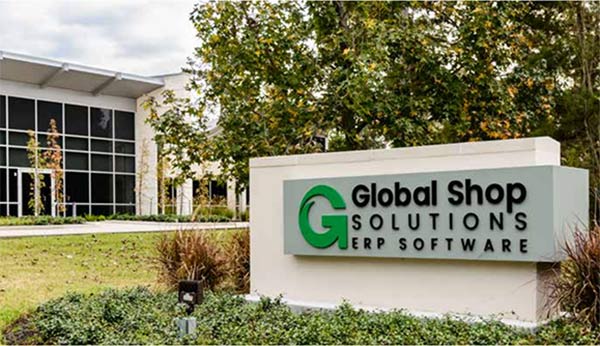SYSPRO USA, a global provider of ERP software, announced a partnership with Priority Technology Holdings, Inc. (NASDAQ: PRTH) and their market-leading accounts payable (AP) solution, CPX, enhancing SYSPRO’s already robust accounts payable capabilities. With this new offering, named Automated Payables for SYSPRO, powered by Priority CPX, SYSPRO customers can enable AP automation, digitizing supplier payment capabilities within SYSPRO ERP Software. We had an interview with Sanjay Ejantkar, Vice President of Alliances at SYSPRO USA, and Steve Tackett, the Executive Vice President and Head of the B2B division for Priority related to this subject.

SYSPRO: Could you tell us about yourself and your role at SYSPRO?
I’m Sanjay Ejantkar, vice president of alliances for SYSPRO Americas. I’ve worked in the manufacturing ERP industry for more than two decades, and at SYSPRO, I’m responsible for our Integrated Technology Program. Our ERP platform is architected to make it easy to integrate best-of-breed software solutions, and we’ve built a vibrant ISV partner program. I lead the creation of the program’s goals, strategy, and processes, and I’m in charge of forging partnerships with leading ISVs like Priority that can bring value to our customers.
Priority: Could you tell us about yourself and your role at Priority?
Yes, I’m Steve Tackett, the Executive Vice President and Head of the B2B division for Priority. I’ve been working in payments since 1997 and first pioneered virtual card payments in 2000. I oversee Priority’s CPX e-payables platform and services. In a nutshell, CPX allows corporations to outsource payments to their suppliers and turn accounts payable from a cost center to a profit center.
SYSPRO: Specializing in key manufacturing and distribution industries since 1978, SYSPRO is one of the longest-running private ERP vendors in the world. How do you ensure the continuity of this success?’
That specialization is one of the keys to our success. We pride ourselves on speaking the language of our manufacturing and distribution customers, and our platform has been purpose-built to meet their unique needs. It makes our platform easier to use and faster to deploy, reducing time to value.
Another key is the ease of integration I mentioned earlier. We already provide 160 modules that provide advanced functionality for our platforms, such as AI, analytics, and IoT. But we don’t stop there. Our ISV program makes it very simple for manufacturers and distributors to integrate additional functionality from other software vendors. One example is Priority’s accounts payable automation software. It future-proofs the platform, protecting our customers’ investment over the long haul.
Priority: Priority enables seamless integration of business data, insights, and action with data-driven business management solutions. It provides painless growth, especially for growing businesses. What do you provide businesses so that their growth is “painless”?
Accounts Payable (AP) is a resource-constrained cost center pretty much anywhere you look across corporate America. Any number of technologies and services are available in the marketplace to automate and scale AP processes, but often companies underinvest to acquire and implement these efficiencies and never reach the expected benefit. Every CFO is looking to electronify payments, but contacting and getting agreement from payees is a lot of work that AP departments just aren’t staffed to perform. Our CPX payments product and services allow CFOs to outsource the heavy lifting of electronifying payments to achieve their payment goals. Send CPX your payments as-is and our payments engine will process them. Behind the scenes, our CPX supplier enablement team will contact your payees that are accepting checks today and move them to virtual cards and ACH.
Virtual cards and ACH+ have the added benefit of generating revenue share. Our clients are able, then, to both electronify payments and shift payments from a cost center to a profit center, while Priority provides both the technology and people to achieve these goals!
SYSPRO: SYSPRO announced a partnership with Priority and their market-leading accounts payable (AP) solution, CPX, enhancing SYSPRO’s already robust accounts payable capabilities. What benefits will this partnership bring to SYSPRO customers?
Many mid-market manufacturers still rely on manual processes that are paper-based to at least some degree. These manual systems are expensive and subject to human error, which causes all kinds of problems, from payment delays to damaged business relationships. Plus, it’s a process that can be exploited for payment fraud.
Our integration and partnership with Priority digitizes and automates the AP payment process, which eliminates manual work, speeds up the process, and vastly improves accuracy. It also gives vendors a lot of flexibility in how they pay — ACH, virtual card, check or wire to remit payment. And if vendors choose the virtual card option, as Steve mentioned, the manufacturer can get a rebate on each virtual card transaction. With enough volume, these rebates can literally pay for the software.
Priority: The new offer called Automated Payables certainly has many advantages. Can you evaluate this partnership in terms of Priority? What benefits will this partnership bring to Priority customers?
Yes, SYSPRO customers benefit from the SYSPRO and CPX integration because payments and suppliers will flow seamlessly from SYSPRO into CPX. In fact, SYSPRO users will never have to learn or log into CPX – they’ll simply perform payments in their ERP, while CPX in the background sends remittances and payments and converts checks to virtual cards and ACH. SYSPRO customers will get all of the benefits of CPX without the cost, hassle, or time typically associated with adopting new technology.
SYSPRO: In the light of the abrupt change in the economic and social world order experienced globally during the last two years, customer expectations continue to shape up accordingly. In the new digital world order, ERP software has started to play a much more critical role. What are your predictions for the future of the industry and your goals as SYSPRO?
It’s definitely a very turbulent time. The supply chain has experienced a ton of disruption, from the China-US trade war and the pandemic to the war in Ukraine. To mitigate risk, manufacturers and distributors need to gather as much information as they can on customer demand and their supply chain. They’ll also need systems to analyze that information to provide the insights required to make accurate, timely decisions.
Additionally, companies will be looking to diversify their supply chain with dual- and multi-sourcing to increase resiliency. But doing so also adds a lot of complexity, which can make it tricky to manage.
Unfortunately, a lot of companies aren’t investing in the technologies they’ll need to support these kinds of strategies. We recently published a survey showing that less than half (45%) of businesses have looked at systems to address supply chain disruptions, and an even smaller percentage (44%) have investigated technologies that enable collaboration with external suppliers and customers. Most companies are investing in tech that will increase their internal efficiency, which is critical. But if they don’t also invest in solutions to manage and mitigate external forces such as the supply chain, those internal efficiencies won’t do much to help when they suddenly can’t procure key components and raw materials.
ERP will play a critical role for companies as they navigate through this difficult and uncertain period. The ERP platform provides a technological foundation for the digital transformation that companies will have to undergo to survive and thrive. For instance, automation and analytics are fundamental technologies for making dual sourcing work well, and they must be tied into the ERP system, which acts as a single source of information about the business. Likewise, material requirements planning solutions, supply chain portals, and data analytics can predict demand, provide advanced warning of shortages and point to strategies for dealing with them, but they all have to work in concert through the ERP.
Priority: With the pandemic, virtual payment has become much more habitual. As Priority, what predictions do you have for the future of virtual payment software? And can you talk about the future plans of Priority?
COVID certainly has helped accounting departments break out of some tedious and manual processes. We’ve experienced a tremendous jump in automation and electronification of payments from both the buyer and supplier sides since COVID started and that’s only going to continue.
Virtual cards are central to that trend because they are almost universally accepted, have the controls of a check or ACH without the costs, and can also deliver a meaningful revenue share. Much of the innovation in virtual payments functionality will be industry vertical-specific.
Partnerships between technology companies like SYSPRO and fintech like Priority over time will become the norm to make the payment process easier. While banks will continue to do behind the scenes treasury management and banking, the biggest shifts we see are 1) fintechs like Priority supplanting banks because of their ability to innovate and deliver a better customer experience, and 2) regional and state banks leveraging the power of fintech to compete with national and international.
Priority will continue to innovate and expand in accepting and making payments. Another exciting area of growth to keep an eye on is our Banking-as-a-Service application, which allows our customers to collect, store and send money. The future is hard to predict but we expect Priority to continuing to be a thought and technology leader in the payment space for years to come.







